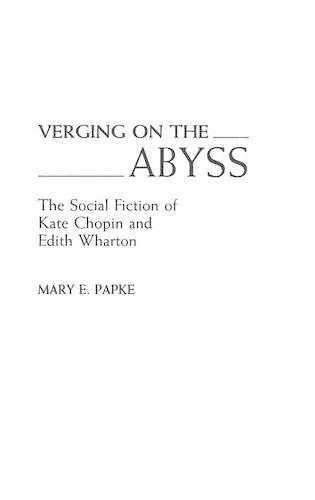
Verging on the Abyss: The Social Fiction of Kate Chopin and Edith Wharton
(Hardback)
Publishing Details
Verging on the Abyss: The Social Fiction of Kate Chopin and Edith Wharton
By (Author) Mary Elizabeth Papke
Bloomsbury Publishing PLC
Praeger Publishers Inc
21st September 1990
United States
Classifications
Tertiary Education
Non Fiction
Literary studies: fiction, novelists and prose writers
Literary studies: c 1800 to c 1900
Gender studies: women and girls
813.409355
Physical Properties
Hardback
208
Description
While neither Kate Chopin nor Edith Wharton can be called feminist writers, each did produce "female moral art", writings that focus relentlessly on the dialectics of social relations and the position of women therein. Mary Papke analyzes their disintegrative visions through detailed readings of virtually all of their novels and several of their shorter works. Unlike comparable writers of their time, theirs was a non-polemical but nonetheless political art in which disruption of the rules of masculine/feminine discourse and the hegemonic world view are deeply but obviously embedded within character, plot and theme. Papke begins with a brief examination of the ideology of true womanhood, which, she argues, permeates Chopin's and Wharton's fiction and world views. The remainder of her work offers an ideological reading of their social fiction in which their characters search for states of liminality, where they might achieve, however momentarily, autonomy. Repeatedly, Papke argues, these states of liminality are literally encoded into images of characters positioned on the edge of an abyss that then becomes a repository of multiple meanings.
Author Bio
MARY E. PAPKE is an Assistant Professor of English at the University of Tennessee, Knoxville. She is also assistant editor of Literature and Psychology. Ms. Papke has contributed articles and essays to Approaches to Teaching Chopin's 'The Awakening', Literature and Psychology, Tulsa Studies in Women's Literature, Telos, and The Sean O'Casey Review.
